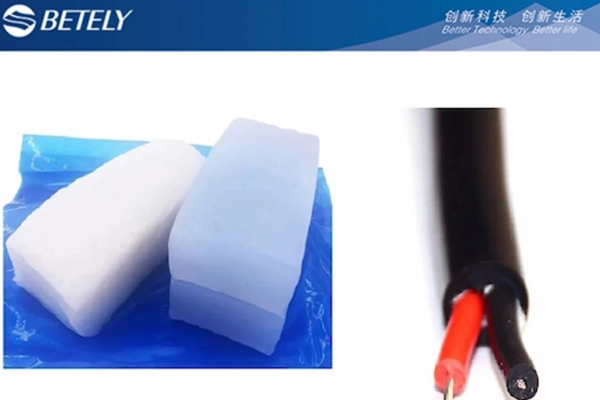Flame Retardant Solid Silicone

Ürün tanımı
Silicone Flame Retardant
The product is a heat-resistant peroxide-curing solid silicone rubber compound for forming. Our flame resistant silicone is a high-quality product designed to meet the rigorous requirements of a wide range of industries. This product is ideal for applications that require superior fire resistance and superior physical properties. Its superior flame retardancy is obtained from a combination of flame retardant additives and our unique compounding processes. The product provides excellent physical properties such as tensile strength, elongation, tear resistance, and compression set resistance. Our flame retardant solid silicone is suitable for a wide variety of applications such as automotive, electrical, industrial, and medical applications. Betely, a sophisticated flame retardant silicone rubber factory, is confident that our flame retardant solid silicone can meet your needs and exceed your expectations. We invite you to explore our product category further and contact us with any questions.
Types of Flame Retardant Solid Silicone
Flame Retardant Solid Silicone Rubber SH-8660
Is silicone flame resistant?
Silicone is a popular material that is used in many everyday items and products. It is renowned for its versatility, as it can be used to construct items ranging from cooking utensils to medical equipment. As such, it is important to understand the characteristics of silicone and its potential uses. One important aspect of silicone is its flame resistance. In order to understand if silicone is flame resistant, it is important to look at its properties and how it responds when exposed to flames.
Silicone is a synthetic silicone rubber raw material that is composed of silicone polymers and other organic compounds. It is highly resistant to water, oil and stains, making it a popular choice for many applications. However, what makes silicone unique is its ability to withstand extremely high temperatures without breaking down. This is due to its chemical structure, which includes an extremely high melting point. Because of this, silicone is often used in applications that require heat resistance, such as electrical insulation and cooking tools.
Apart from its heat resistant properties, silicone also has flame resistant properties. When exposed to a flame, silicone does not combust, burn or melt. Instead, it forms a protective layer over the surface of the material, preventing the fire from reaching the material underneath. This layer is extremely effective at preventing fires from spreading, making it a great choice for fire safety applications.
In addition to its flame resistant properties, silicone is also highly resistant to other forms of damage. It is highly durable and can withstand wear and tear. It also does not degrade over time, meaning it has a long lifespan. This makes it an excellent choice for long-term applications.
Overall, silicone is an excellent material that is highly resistant to flames and other forms of damage. It is an excellent choice for many applications, such as medical equipment and cooking tools. Its flame resistant properties make it a great choice for fire safety applications.
The Difference Between Flame Retardant and Non-Flame Retardant Solid Silicone Rubber
Flame retardant and non-flame retardant solid silicone rubber are two different types of rubber used in various industries. Flame retardant solid silicone rubber is a type of rubber that is designed to prevent and/or slow the spread of fire. It is usually used in applications where fire or high heat is present such as in the automotive and aerospace industries. Non-flame retardant solid silicone rubber does not have any flame retardant properties and is primarily used in applications where the fire is not a concern, like medical and food processing applications.

